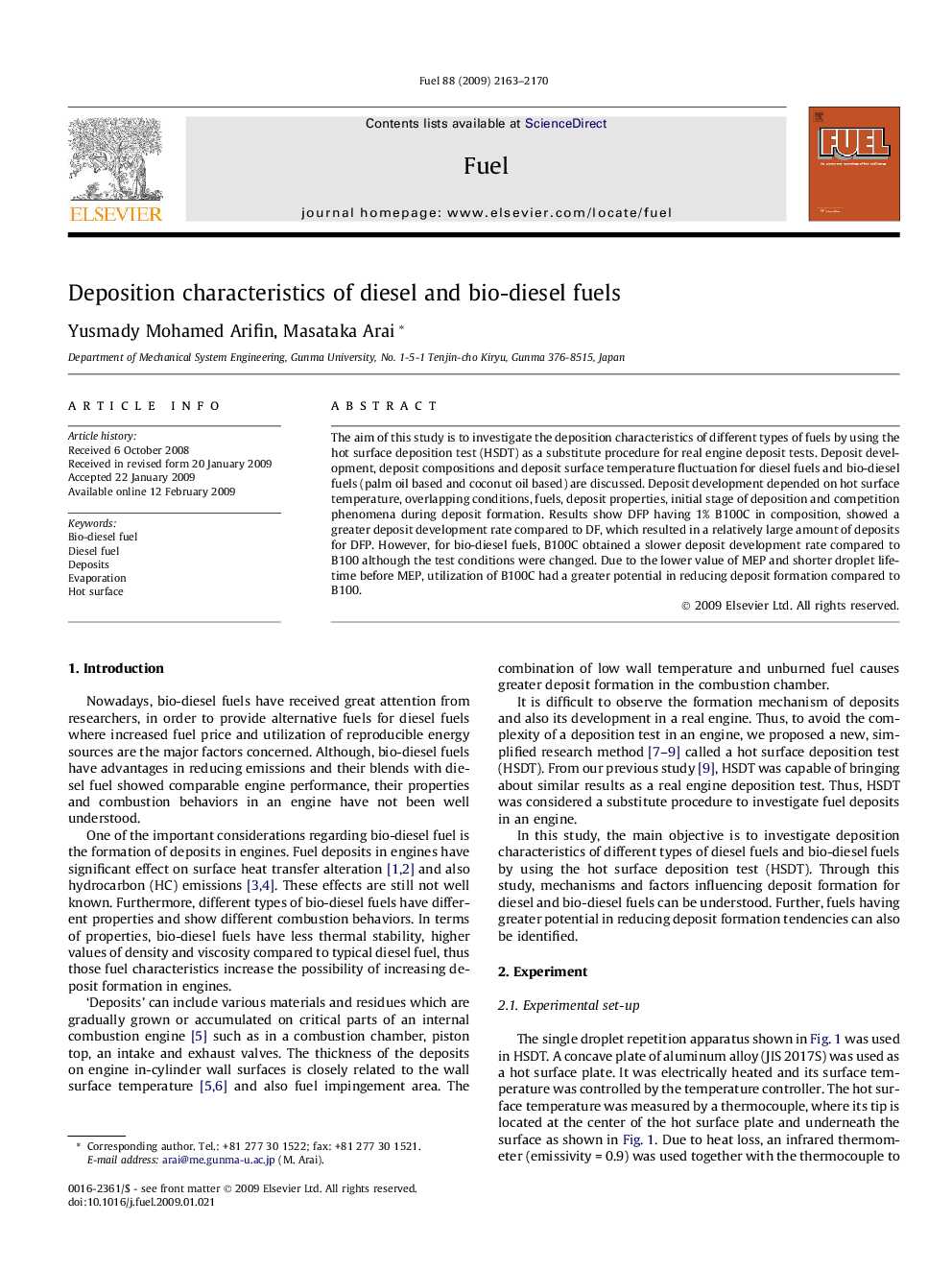| Article ID | Journal | Published Year | Pages | File Type |
|---|---|---|---|---|
| 206704 | Fuel | 2009 | 8 Pages |
The aim of this study is to investigate the deposition characteristics of different types of fuels by using the hot surface deposition test (HSDT) as a substitute procedure for real engine deposit tests. Deposit development, deposit compositions and deposit surface temperature fluctuation for diesel fuels and bio-diesel fuels (palm oil based and coconut oil based) are discussed. Deposit development depended on hot surface temperature, overlapping conditions, fuels, deposit properties, initial stage of deposition and competition phenomena during deposit formation. Results show DFP having 1% B100C in composition, showed a greater deposit development rate compared to DF, which resulted in a relatively large amount of deposits for DFP. However, for bio-diesel fuels, B100C obtained a slower deposit development rate compared to B100 although the test conditions were changed. Due to the lower value of MEP and shorter droplet lifetime before MEP, utilization of B100C had a greater potential in reducing deposit formation compared to B100.
